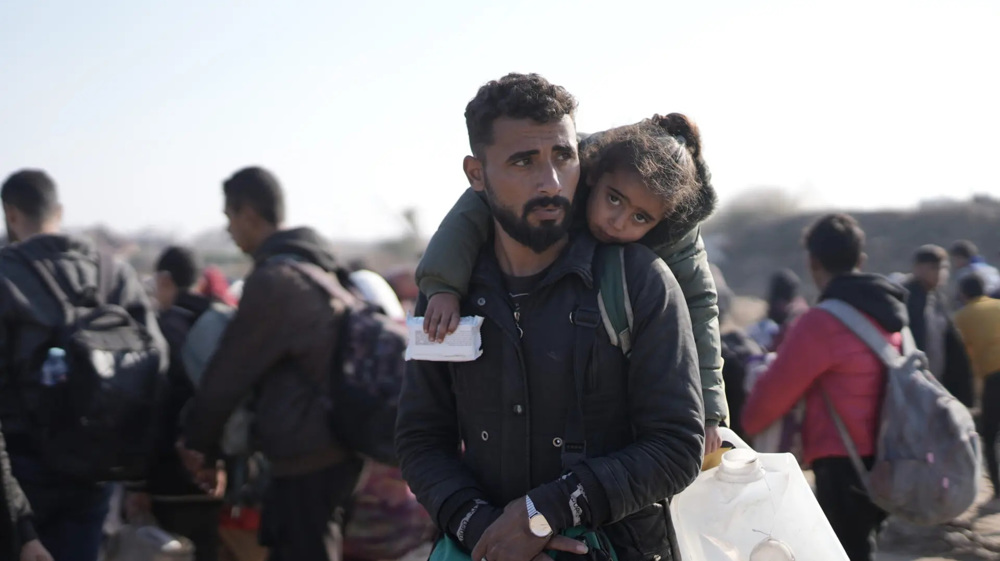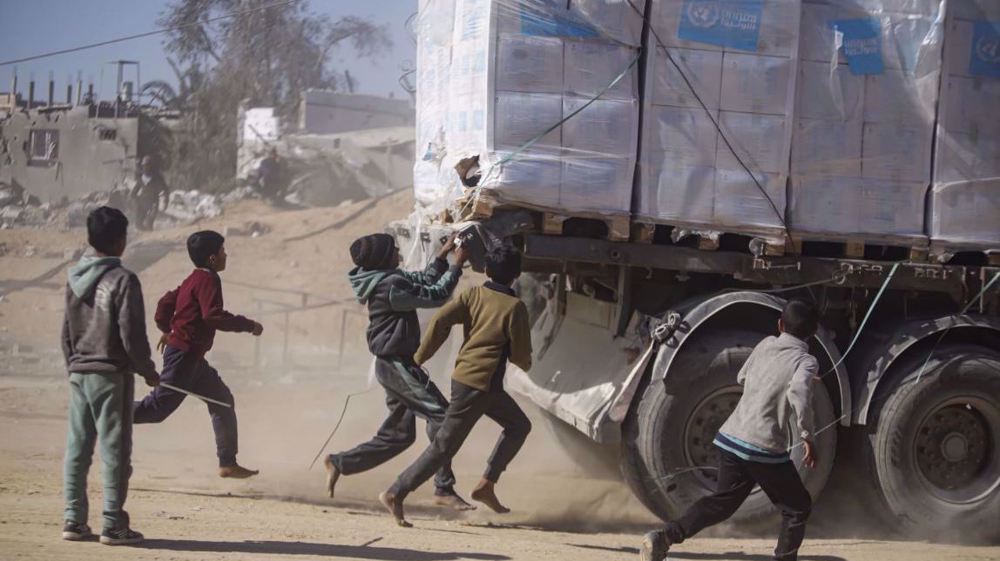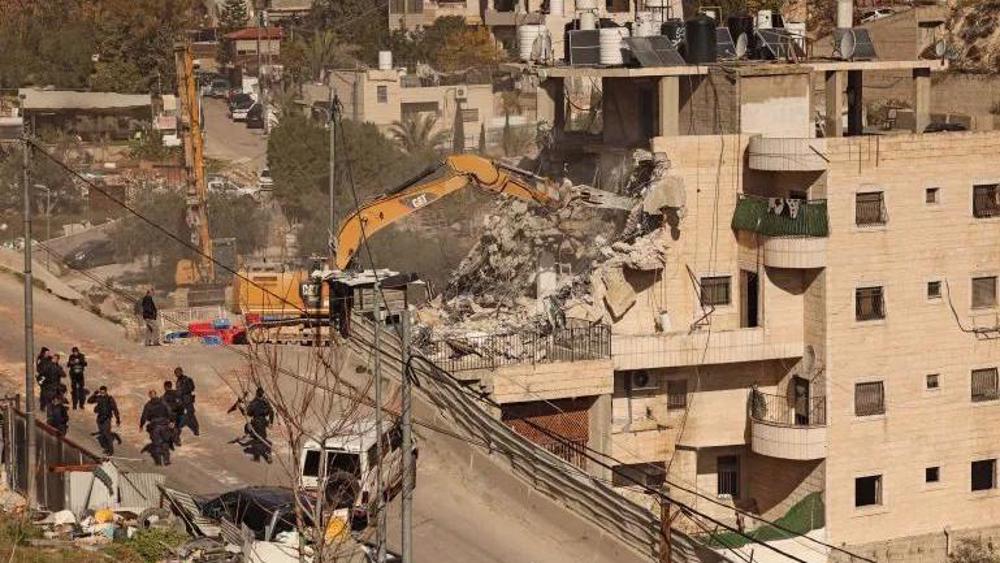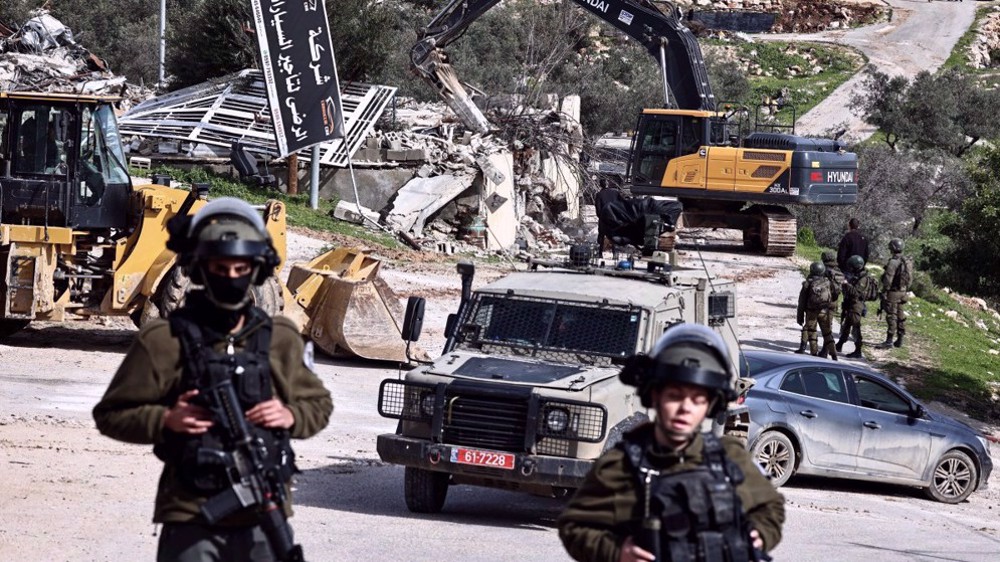Israel still restricting vital aid to Gaza Strip as 801 trucks enter: UN
Israel is still severely restricting the amount of essential humanitarian aid deliveries to the blockaded Gaza Strip, aid organizations warn, in violation of a ceasefire in place between Tel Aviv and the Palestinian Hamas resistance movement.
In a statement on Wednesday, the UN’s Office for the Coordination of Humanitarian Affairs (OCHA) said 801 aid trucks had entered the Palestinian territory earlier in the day “through interactions with the Israeli authorities and the guarantors for the ceasefire deal.”
Nevertheless, it warned that access to the war-ravaged Palestinian territory is still tightly limited, with severe restrictions on vital items such as fuel and medical equipment.
The UN agency added that the world body and its partners, however, spare no effort to seize any opportunity provided by the shaky truce “to scale up the provision of water, food, shelter, health, sanitation, hygiene, clothing, education and other assistance to the people of Gaza.”
OCHA also noted that the Israeli army's acts of aggression in northern areas of the occupied West Bank “continue to cause civilian casualties and displacement, as well as damage to infrastructure.”
Separately, UNRWA, the UN refugee agency that works primarily with the Palestinians being oppressed by the Israeli regime, said that it successfully delivered food to 1.2 million people in Gaza during the first two weeks of the ceasefire.
“As of last week, UNRWA was hosting about 120,000 people in 120 shelters, including more than three dozen that opened since the ceasefire,” it added.
Furthermore, it managed to establish 37 new shelters in northern Gaza, providing displaced families with essential supplies, including tents, blankets, and winter clothing, the agency added.
Last week, the Norwegian Refugee Council (NRC), a global aid agency, warned that the amount of aid entering Gaza on a daily basis is insufficient to respond to the needs of the residents.
Israel’s hindering of aid delivery comes while the UN Under-Secretary-General for Humanitarian Affairs, Tom Fletcher, said on February 6 that “the scale of destruction and suffering is beyond my worst fears.”
During the 15 months of the Israeli regime’s genocidal war against the people of Gaza that began in October 2023, over 48,000 were killed, most of them children and women.
On January 15, the Israeli regime, having failed to achieve any of its war objectives including the “elimination” of Hamas or the release of captives, was forced to agree to a ceasefire deal with the Gaza-based resistance movement.
Under the ceasefire agreement, Israel is required to allow the entry of at least 60,000 temporary homes and 200,000 tents into Gaza during the initial 42-day phase. It must also allow a specified amount of equipment for clearing rubble.
Moreover, repairs to Gaza’s severely damaged electricity, water, sewage, and communications systems, along with its destroyed roads, will begin during the first phase. The planning process for rebuilding homes devastated by the war will begin as well.
The UN, along with ceasefire mediators Egypt and Qatar, is to oversee all repairs and planning efforts.
‘Racist’ Florida congressman draws outrage over Islamophobic comment
‘Get the files out’: Hillary Clinton slams Trump for Epstein files ‘cover-up’
Netanyahu’s former chief of staff dies suddenly at 58
Discover Iran: How once-isolated Makran coast is rising as Indian Ocean’s next strategic powerhouse
Hamas says it has not received deadline for disarmament as Israel threatens to reignite war
Switzerland weighs European option as Patriot delivery stalls
VIDEO | Press TV's news headlines
VIDEO | Another Gaza medic dies in Israeli custody











 This makes it easy to access the Press TV website
This makes it easy to access the Press TV website